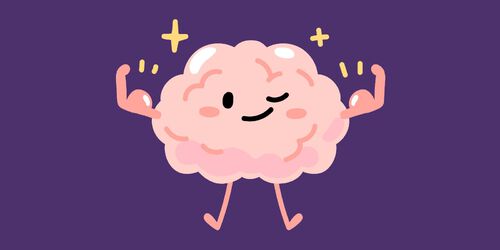
Vacature: fulltime fitnesscoach
- General - General
We zijn op zoek naar een gemotiveerde en flexibele coach om het fitnessteam van Thermae Sports Merchtem te versterken (fulltime of min. 4/5e).
1

Have you ever noticed that you can concentrate better after a good workout? That’s no coincidence! Regular physical activity not only has physical benefits but also plays a crucial role in improving memory and cognitive functions.
Read the entire article
Here’s how it works:
1. Improved Blood Circulation
Exercise increases blood flow to the brain, ensuring a better supply of oxygen and nutrients. This helps brain cells function more effectively and promotes the growth of new neurons.
2. Stimulation of Brain Adaptability
Physical activity boosts the production of neurotrophins, such as BDNF (Brain-Derived Neurotrophic Factor). This protein supports the growth and protection of brain cells, which is essential for learning and memory retention.
3. Reduction of Stress and Anxiety
Stress and anxiety can impair memory. Exercise lowers the production of stress hormones like cortisol and increases the release of endorphins, leading to a better mood and sharper cognitive functions.
4. Better Sleep Quality
Regular physical activity helps you sleep better, and sleep is crucial for memory consolidation. During deep sleep, your brain processes and stores new information.
5. Prevention of Cognitive Decline
In the long term, exercise helps reduce the risk of cognitive decline and neurodegenerative diseases such as dementia and Alzheimer’s.
How Much Exercise is Enough?
Research suggests that 150 minutes of moderate to intense exercise per week – such as walking, running, cycling, or swimming – already has a positive effect on memory and mental sharpness.
So, the next time you feel forgetful, put on your sneakers and get moving! Your brain will thank you.

- General - General
We zijn op zoek naar een gemotiveerde en flexibele coach om het fitnessteam van Thermae Sports Merchtem te versterken (fulltime of min. 4/5e).

- Promo - Promo
Are you a student and want to get sporty during the Easter vacations? Then we have good news for you!

- General - General
Thermae Sports is embracing the Easter holidays with a sporty touch, hosting no less than three tournaments!
We use cookies to improve your experience on our website.
Don't forget to complete your reservation
Dear guest, please remember to complete your reservation. You currently have 5 minutes left to make this reservation.
Booking cancelled
Dear guest, the reservation time limit has expired.